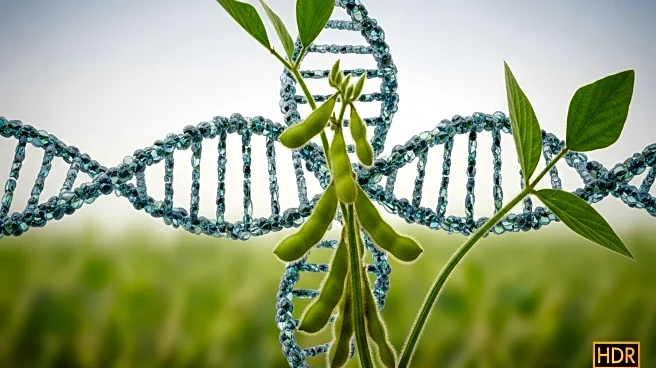What's Happening?
A study has identified natural allelic variation in the SW14 gene as a determinant of seed weight and quality in soybeans. Through genome-wide association studies and QTL mapping, researchers pinpointed SW14 on chromosome 14 as a significant locus affecting seed weight. The study involved phenotyping 320 soybean accessions and identified three haplotypes of SW14, with SW14H3 associated with higher seed weight and protein content but lower oil content compared to SW14H1 and SW14H2. The research also demonstrated that SW14 interacts with other proteins to regulate seed traits, and its variations affect protein stability, influencing seed development.
Why It's Important?
The findings have significant implications for soybean breeding programs aimed at improving yield and quality. By understanding the genetic basis of seed weight and quality, breeders can select for desirable traits, potentially increasing soybean productivity and nutritional value. The study also highlights the role of genetic diversity in crop improvement, offering insights into how natural variations can be harnessed for agricultural advancements.
What's Next?
Future research may focus on utilizing the SW14H3 allele in breeding programs to enhance soybean yield and quality. Studies could explore the genetic mechanisms underlying SW14's effects on seed traits, potentially leading to the development of new soybean varieties with optimized characteristics. Additionally, researchers may investigate the broader implications of SW14 variations in other leguminous plants.
Beyond the Headlines
The study underscores the importance of genetic research in agriculture, particularly in understanding how natural variations can be leveraged for crop improvement. It also highlights the potential for genetic studies to contribute to sustainable agriculture by enhancing crop yield and quality without relying on chemical inputs.










